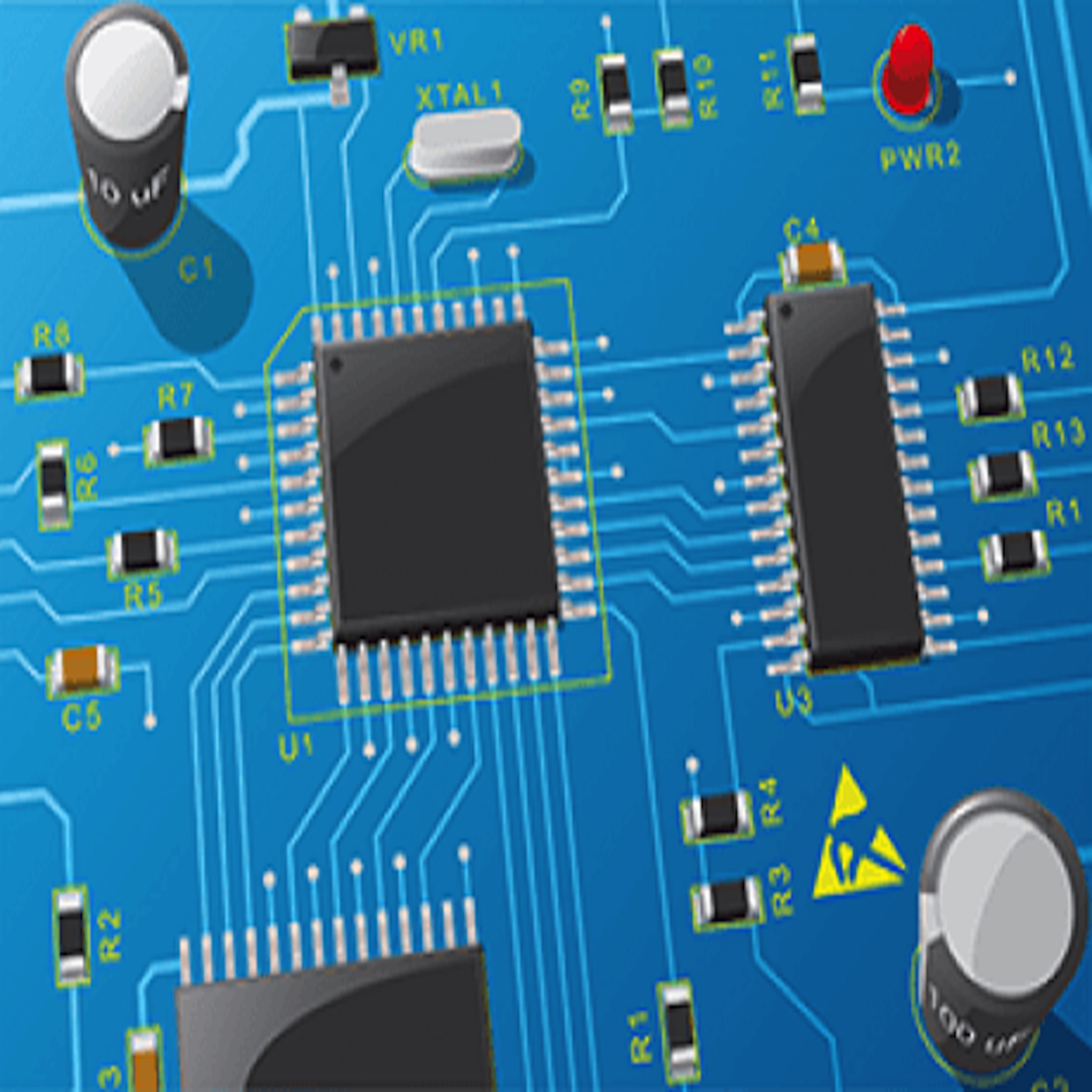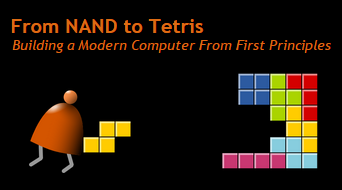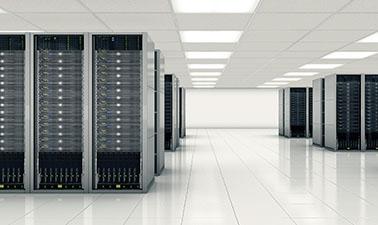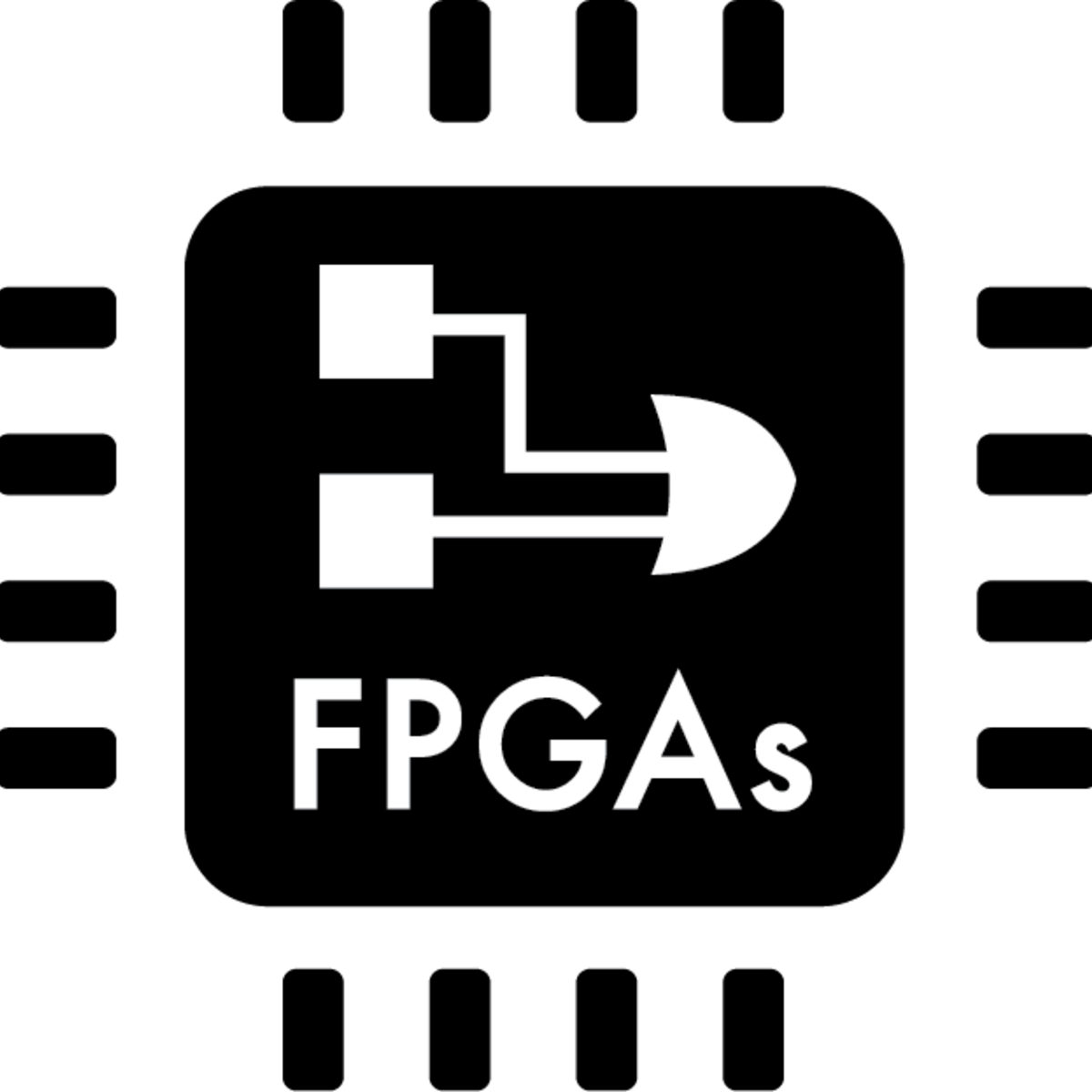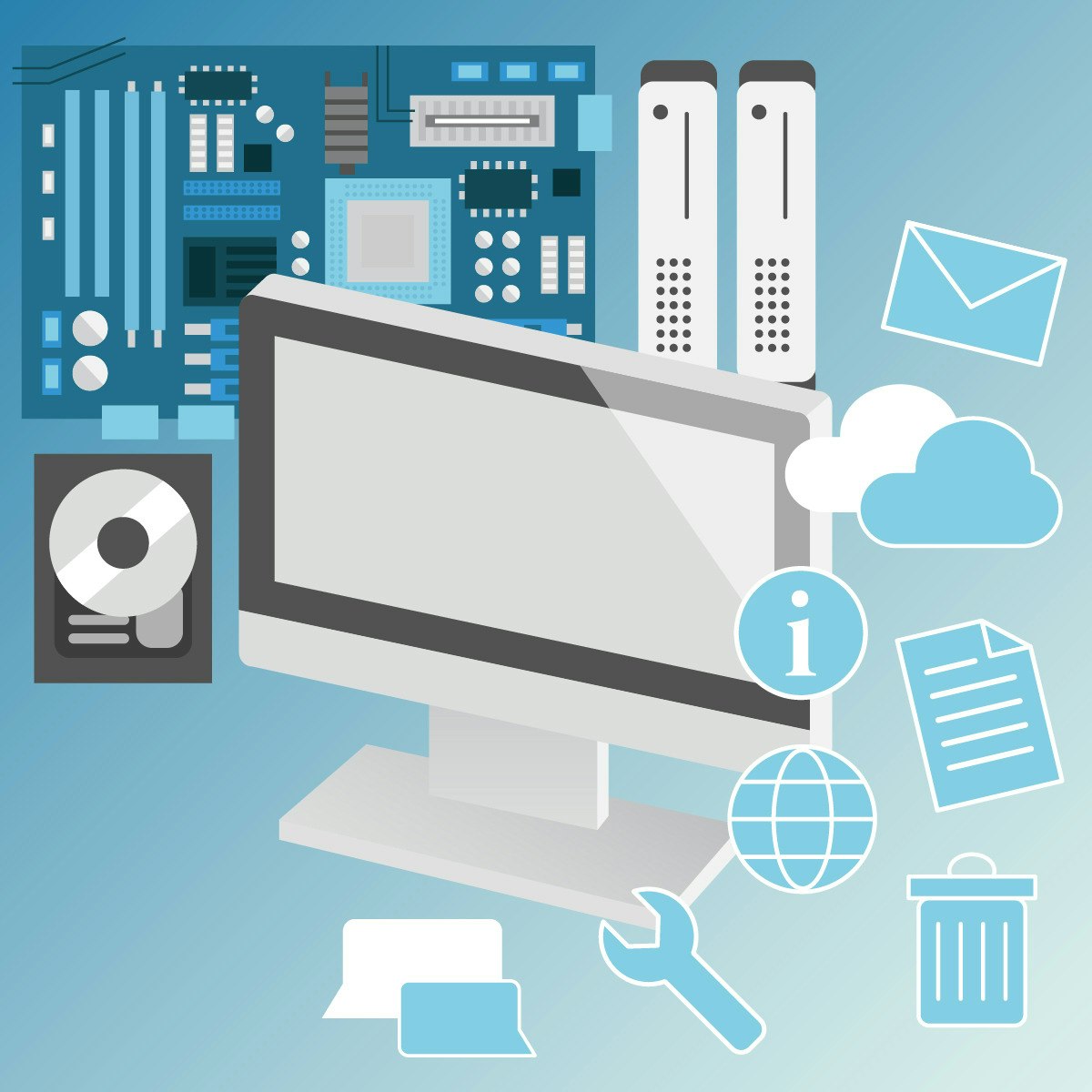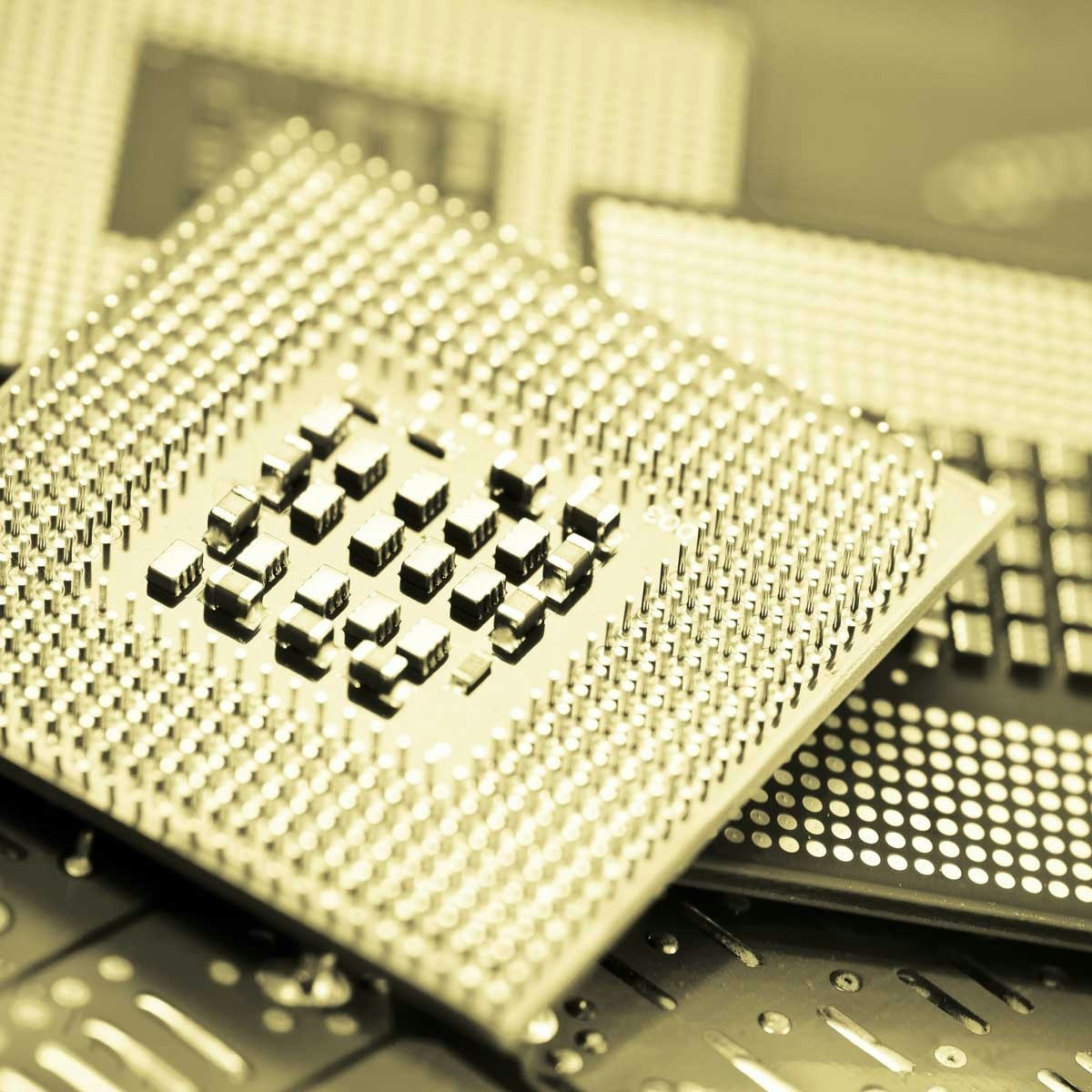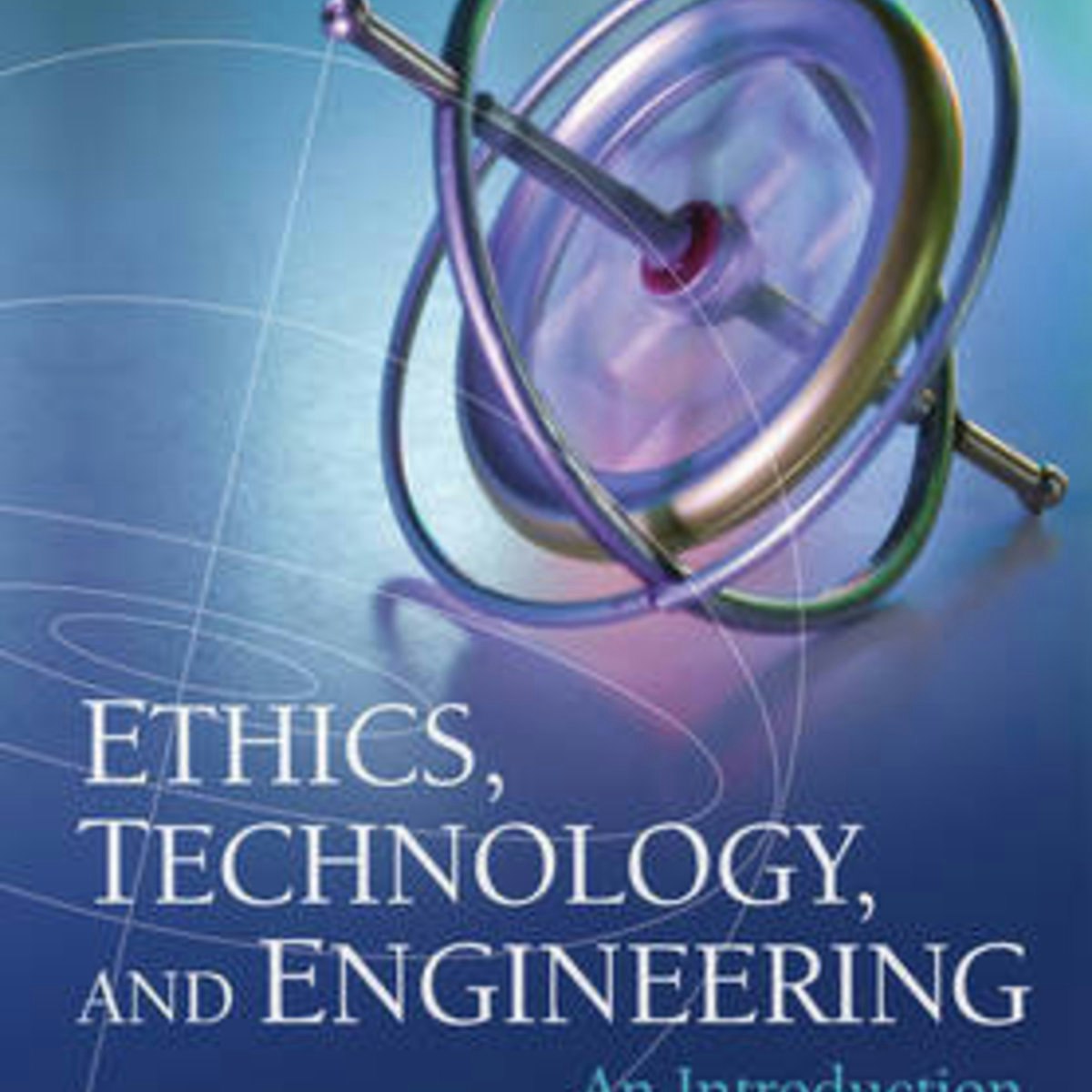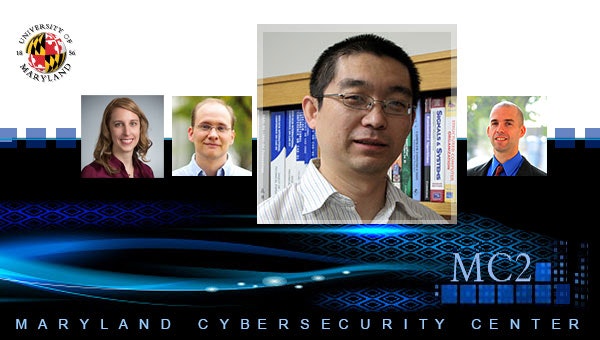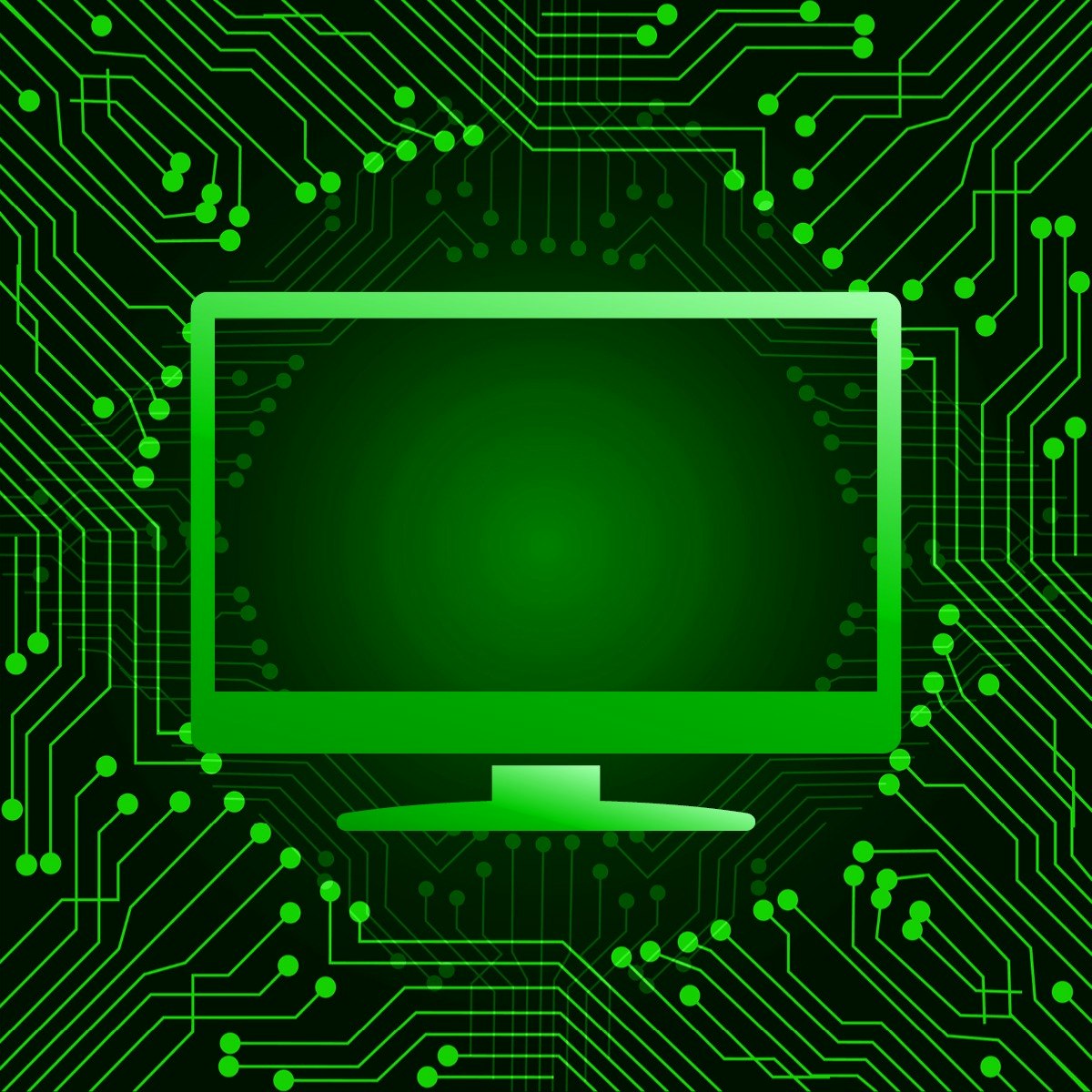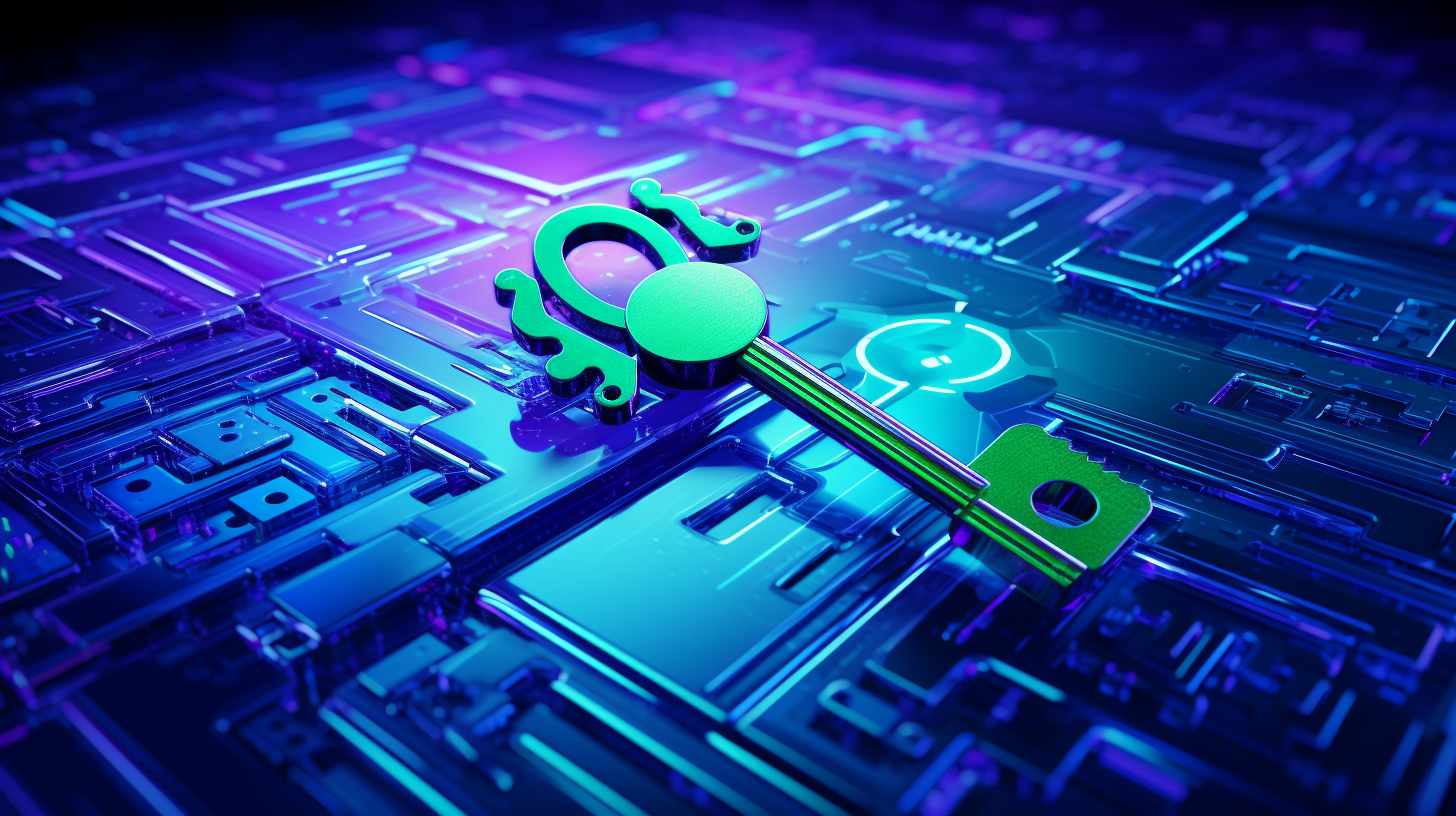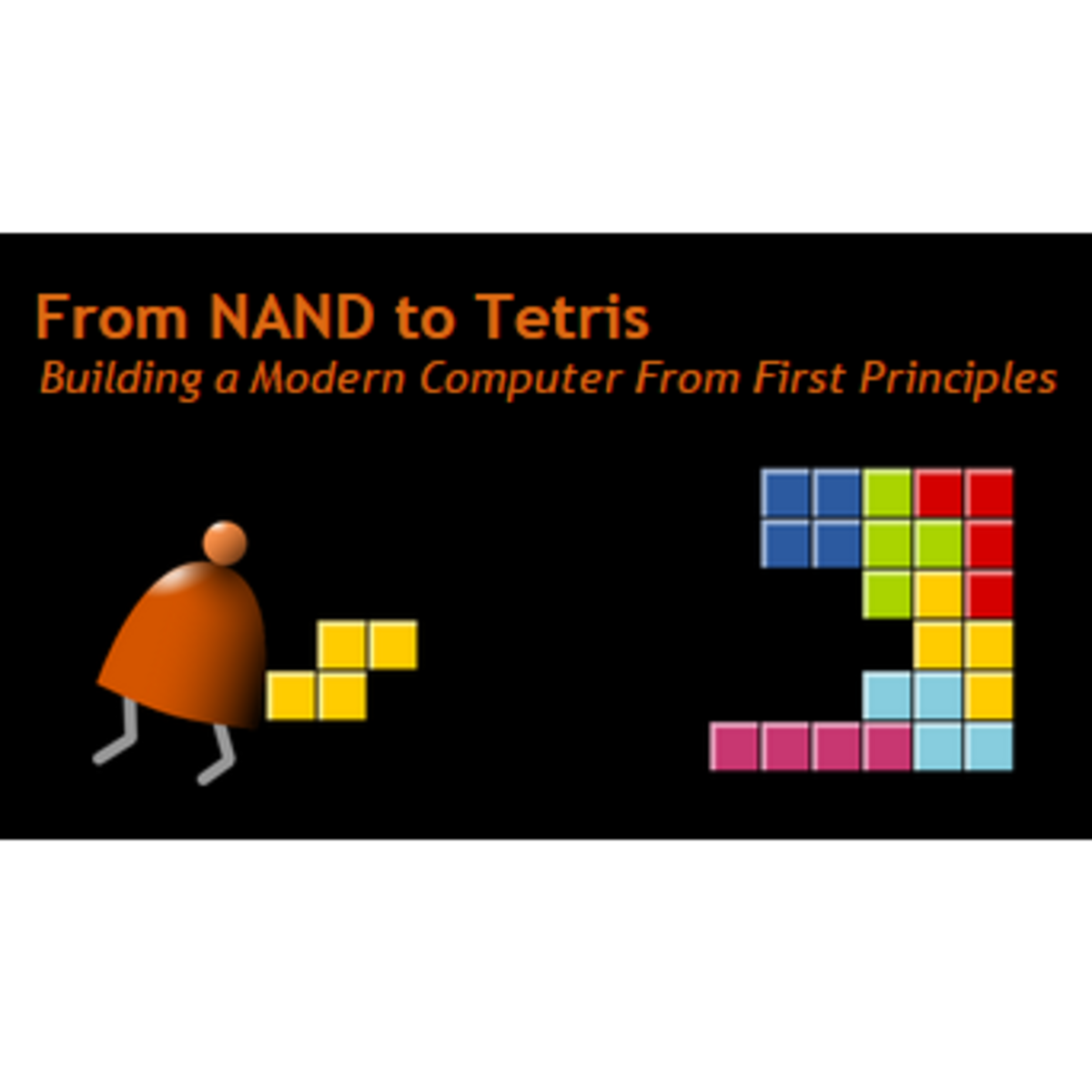Computer Hardware Engineer
A Comprehensive Guide to a Career as a Computer Hardware Engineer
Computer hardware engineering is a dynamic and intellectually stimulating field focused on the research, design, development, and testing of computer systems and their physical components. This includes everything from processors and circuit boards to memory devices, networks, and routers. Essentially, if you can physically touch a part of a computer or a device that uses computer technology, a hardware engineer was likely involved in its creation. These professionals are at the forefront of technological advancement, constantly pushing the boundaries of what's possible in speed, efficiency, and capability.
Working as a computer hardware engineer can be incredibly engaging. You might find yourself designing the microprocessors that power the next generation of smartphones, developing the complex hardware systems for medical devices, or even contributing to the cutting-edge technology used in automobiles and aerospace. The thrill of seeing your designs come to life, solving intricate technical puzzles, and contributing to innovations that shape our daily lives are just a few aspects that professionals in this field often find exciting. It's a career that combines deep technical knowledge with creativity and problem-solving.
This article will explore the multifaceted world of computer hardware engineering. We will delve into the core skills required, the educational pathways available, and the career progression you can expect. We aim to provide a comprehensive overview to help you determine if this challenging and rewarding career is the right fit for you.
What Computer Hardware Engineers Do
At its core, the role of a computer hardware engineer revolves around the entire lifecycle of computer hardware components and systems. This begins with research and conceptualization, where engineers identify needs and possibilities for new or improved hardware. They then move into the design phase, creating detailed schematics and blueprints for computer equipment. This involves specifying materials, components, and the overall architecture of the hardware.
A significant part of a hardware engineer's job involves testing prototypes and analyzing the results. They meticulously evaluate performance, reliability, and cost-effectiveness, often modifying designs based on test data to achieve optimal outcomes. Hardware engineers also play a crucial role in updating existing computer equipment to ensure compatibility with new software and technological advancements. Furthermore, they often oversee the manufacturing process to ensure that products are built to specifications. Collaboration is key, as hardware engineers frequently work with software developers to ensure seamless integration and functionality, especially in an era where hardware and software are often developed concurrently.
The work environment for most computer hardware engineers is typically in research laboratories or office settings where they design, build, and test various computer models. Some may also spend time in industrial plants or at production sites, overseeing manufacturing operations or troubleshooting issues. While a standard 40-hour work week is common, deadlines and complex design challenges can sometimes necessitate longer hours.
Core Skills for Computer Hardware Engineers
Succeeding as a computer hardware engineer requires a robust combination of technical expertise and essential soft skills. These skills enable engineers to tackle complex design challenges, collaborate effectively, and drive innovation in a rapidly evolving technological landscape.
Technical Prowess in Hardware Engineering
A deep understanding of circuit design is fundamental. This includes analog and digital circuits, and the ability to analyze and create complex circuit layouts. Engineers must be proficient in using Computer-Aided Design (CAD) software to develop schematics and simulate hardware performance. Knowledge of embedded systems is also crucial, as many modern devices incorporate sophisticated processors and microcontrollers that interact with the physical world.
Hardware testing and validation are critical components of the role. Engineers need to be adept at developing test plans, executing tests using specialized equipment like oscilloscopes and multimeters, and meticulously analyzing the data to identify and resolve issues. Familiarity with various operating systems (like Windows, Linux, and real-time operating systems) is also important to ensure hardware compatibility and performance. Additionally, a working knowledge of programming languages such as C, C++, or hardware description languages (HDLs) like Verilog or VHDL is often necessary for designing, testing, and debugging hardware.
For those looking to build a strong foundation in these technical areas, online courses can be an excellent starting point. They offer flexible learning opportunities to grasp fundamental concepts and gain hands-on experience with industry-standard tools.
These books offer in-depth knowledge and practical insights into the core technical skills required by computer hardware engineers, covering circuit theory, digital design, and computer architecture.
Essential Soft Skills for Collaboration and Innovation
Beyond technical acumen, certain soft skills are indispensable for computer hardware engineers. Strong analytical and critical-thinking skills are paramount for dissecting complex problems, evaluating different design approaches, and making sound engineering decisions. Problem-solving is a daily activity, requiring engineers to creatively and methodically find solutions to intricate hardware challenges.
Effective communication skills, both written and verbal, are also vital. Engineers must be able to clearly articulate technical concepts to team members, managers, clients, and other stakeholders who may not have an engineering background. Teamwork is another crucial aspect, as hardware development is often a collaborative effort involving professionals from various disciplines, including software engineering, manufacturing, and marketing.
Attention to detail is critical, as even minor errors in design or manufacturing can lead to significant problems. Adaptability and a commitment to lifelong learning are also important, given the rapid pace of technological advancement in the hardware industry.
The Rise of Specialized and Emerging Skills
The field of computer hardware engineering is constantly evolving, with new specializations and skill demands emerging. One significant area is the integration of Artificial Intelligence (AI) into hardware. This involves designing specialized processors and chips (like AI accelerators and neuromorphic chips) optimized for machine learning and deep learning tasks. Engineers in this space focus on enhancing performance, energy efficiency, and scalability for AI workloads.
The proliferation of Internet of Things (IoT) devices also presents new opportunities and challenges. Hardware engineers are needed to design the sensors, actuators, and communication technologies that enable these interconnected devices. This requires a focus on interoperability, security, and energy efficiency for complex IoT ecosystems. As technology pushes forward, skills in areas like quantum computing and advanced semiconductor technologies are also becoming increasingly valuable.
Online learning can be instrumental in acquiring these emerging skills, providing access to cutting-edge topics and specialized knowledge.
Educational Pathways for Computer Hardware Engineers
Embarking on a career as a computer hardware engineer typically involves a structured educational journey, often beginning in high school and progressing through higher education. Understanding these pathways can help aspiring engineers plan their academic and extracurricular activities effectively.
Laying the Groundwork: Pre-University Preparation
For high school students interested in computer hardware engineering, a strong foundation in STEM (Science, Technology, Engineering, and Mathematics) subjects is crucial. Courses in physics, advanced mathematics (including calculus), and computer science are highly recommended. Participation in activities like robotics clubs, science fairs, or coding competitions can provide valuable hands-on experience and demonstrate a passion for the field.
Developing good study habits, problem-solving skills, and a knack for logical thinking during these formative years will also be beneficial. Exploring introductory online resources or tinkering with electronics kits, such as those based on Arduino or Raspberry Pi, can further ignite interest and provide a practical understanding of basic hardware concepts. These early experiences can be instrumental in solidifying a student's decision to pursue this demanding yet rewarding career path.
OpenCourser offers a wide array of introductory courses that can help high school students explore the fundamentals of electronics and programming, providing a taste of what a career in hardware engineering might entail. You can explore these foundational topics through our Engineering and Computer Science browse pages.
The Cornerstone: Undergraduate Degrees
The most common entry point into the computer hardware engineering profession is a bachelor's degree. Typically, this will be in computer engineering, electrical engineering, or a closely related field like computer science with a hardware focus. Employers often prefer candidates who have graduated from an ABET (Accreditation Board for Engineering and Technology) accredited program, as this signifies that the program meets certain quality standards.
Undergraduate coursework in these programs usually covers a broad range of topics, including circuit theory, digital logic design, computer architecture, microprocessors, embedded systems, electronics, and programming. Students also gain experience with industry-standard design and simulation tools. Many programs include laboratory work and design projects, which provide practical application of theoretical knowledge. An internship during undergraduate studies is highly recommended and can provide invaluable real-world experience and networking opportunities.
Online courses can supplement a formal degree program by offering specialized knowledge in particular areas or by providing alternative learning pathways for certain foundational concepts. For instance, if a specific niche within hardware engineering, like processor design, is of interest, online courses can offer focused learning in that domain.
For those seeking comprehensive knowledge in computer organization and design, these books are considered foundational texts in many undergraduate engineering programs.
Reaching New Heights: Advanced Degrees and Research
While a bachelor's degree is typically sufficient for entry-level positions, a master's degree or even a Ph.D. can open doors to more specialized roles, research positions, and leadership opportunities. Some large firms or highly specialized jobs may require a master's degree in computer engineering. Advanced degrees allow for deeper specialization in areas such as VLSI (Very Large Scale Integration) design, computer architecture, embedded systems, semiconductor devices, or networking hardware.
Pursuing a Ph.D. is generally geared towards those interested in academic research or cutting-edge industrial research and development. These programs involve intensive research, often in collaboration with industry partners, and culminate in a dissertation that contributes new knowledge to the field. Regardless of the highest degree obtained, continuous learning is essential for computer hardware engineers to keep pace with the rapid advancements in technology.
For individuals considering advanced studies or looking to deepen their expertise in specific subfields, targeted online courses can offer advanced theoretical knowledge and practical skills development.
Advanced texts like these delve into the complexities of modern processor design and system architecture, suitable for graduate-level study or engineers seeking to deepen their expertise.
Online Learning and Self-Taught Pathways
While a traditional university education is the most common route into computer hardware engineering, the rise of online learning platforms and abundant self-study resources has opened up alternative pathways for dedicated and self-motivated individuals. This section explores how online courses and self-directed learning can play a role in acquiring the necessary skills and knowledge for this field, while also grounding these possibilities in reality.
It is important to preface this by stating that fully self-teaching one's way into a formal Computer Hardware Engineer role without a relevant bachelor's degree is exceptionally challenging, though not entirely impossible, especially for roles that might be more technician-focused or in very specific niches. Most employers, particularly for core design and engineering positions, will require a formal engineering degree. However, online learning can be a powerful supplement to formal education, a way to explore the field, or a method to gain specific, practical skills that can lead to related roles or demonstrate aptitude.
Leveraging Online Courses for Foundational Knowledge
Numerous online platforms offer courses covering fundamental aspects of computer hardware engineering, from basic electronics and circuit theory to digital logic design and computer architecture. These courses, often taught by university professors or industry experts, can provide a structured learning experience with video lectures, assignments, and sometimes even interactive simulations. For individuals exploring the field, these courses offer a low-commitment way to gauge their interest and aptitude.
For those already pursuing a formal degree, online courses can supplement their learning by offering different perspectives on complex topics or providing deeper dives into specific areas of interest not extensively covered in their university curriculum. Working professionals looking to pivot into hardware-related fields or update their skills can also greatly benefit from the flexibility and targeted nature of online learning. OpenCourser's extensive catalog makes it easy to find and save courses to a list, allowing learners to build a personalized curriculum.
Many online courses focus on practical skills that are directly applicable in the field. Look for courses that include hands-on labs or simulations to solidify your understanding.
These books provide practical guidance and foundational knowledge that can be invaluable for self-learners or those supplementing formal education, focusing on building systems from the ground up and understanding practical digital design.
The Power of Project-Based Learning
One of the most effective ways to learn hardware engineering concepts, especially for self-taught individuals, is through project-based learning. Building tangible projects allows you to apply theoretical knowledge, troubleshoot real-world problems, and develop a portfolio that can demonstrate your skills to potential employers or academic institutions. Simple projects could involve building basic circuits on a breadboard, while more advanced projects might include designing and building a custom PC, creating projects with Raspberry Pi or Arduino microcontrollers, or even attempting to design a simple processor using FPGAs (Field-Programmable Gate Arrays).
Websites like Instructables and communities around platforms like Arduino and Raspberry Pi offer a wealth of project ideas and tutorials. Engaging in these projects helps develop practical skills in soldering, component selection, schematic reading, and debugging – all essential for a hardware engineer. Documenting your projects, including the design process, challenges faced, and solutions implemented, can be a powerful addition to a resume or portfolio. OpenCourser's Learner's Guide offers tips on how to structure self-learning and stay motivated when tackling complex projects.
Consider these project-oriented courses to gain hands-on experience.
Validating Skills: The Role of Certifications
While not a substitute for a formal degree in most core engineering roles, industry certifications can help validate specific skills, particularly for those who are self-taught or looking to specialize. Certifications from organizations like CompTIA (e.g., A+ for hardware fundamentals) or vendor-specific certifications from companies like Cisco (for networking hardware) can demonstrate a level of competency in certain areas.
For someone aiming to enter the field through a less traditional route, a combination of demonstrable project work and relevant certifications might help in securing technician roles or positions that are adjacent to core engineering, which could then serve as a stepping stone. However, it's crucial to research the specific requirements and preferences of employers in your target industry and location. The path for a self-taught individual is often steeper and requires immense dedication and proactive skill demonstration. Exploring deals on courses and certifications can make this path more accessible.
The following courses can help prepare for industry-recognized certifications or provide a strong foundation in hardware knowledge often covered by such certifications.
Career Progression in Computer Hardware Engineering
A career in computer hardware engineering offers diverse pathways for growth and advancement. As engineers gain experience and expertise, they can move into roles with increasing responsibility, specialization, and leadership. Understanding these potential trajectories can help individuals plan their long-term career goals.
Embarking on the Journey: Entry-Level Roles
Graduates typically begin their careers in entry-level positions such as Junior Hardware Designer, Test Engineer, or Hardware Design Assistant. In these roles, they usually work under the supervision of experienced engineers, contributing to specific aspects of larger projects. Daily tasks might include assisting with the design of components, creating or modifying schematics, conducting tests on hardware prototypes, analyzing test data, and documenting findings.
This initial phase is crucial for building practical skills, gaining exposure to industry practices, and understanding the product development lifecycle. It's a period of intense learning where foundational knowledge from university is applied to real-world challenges. Success in these early roles often depends on a strong work ethic, a willingness to learn, and the ability to contribute effectively to a team.
Online courses can help new graduates refresh their knowledge on specific tools or concepts as they begin their careers, ensuring they are well-prepared for the technical demands of their first roles.
Advancing and Specializing: Mid-Career Paths
With several years of experience, computer hardware engineers can advance to more senior roles and often choose to specialize in specific areas. Mid-career paths might include roles like Senior Hardware Engineer, Systems Architect, or Research and Development (R&D) Specialist. In these positions, engineers take on more complex design challenges, lead projects, mentor junior engineers, and may have more direct interaction with clients or other departments.
A Systems Architect, for example, focuses on the high-level design of computer systems, ensuring that all hardware components work together effectively and meet overall performance requirements. An R&D Specialist might focus on exploring new technologies, developing innovative hardware solutions, or improving existing designs. This stage often involves a deeper dive into specialized technical areas and may require staying abreast of the latest advancements through continuous learning and professional development.
Professionals at this stage can leverage online courses to gain expertise in new technologies or specialized fields, helping them transition into more focused roles or take on more challenging projects.
These books delve into advanced topics in computer architecture and system design, valuable for engineers looking to move into architect or specialist roles.
Leading the Way: Management and Executive Opportunities
Experienced and accomplished computer hardware engineers can progress into leadership and management positions. Roles such as Engineering Manager, Project Manager, Director of Engineering, or even Chief Technology Officer (CTO) become attainable. In these capacities, the focus shifts from hands-on design work to overseeing teams, managing budgets and timelines, strategic planning, and making high-level technical decisions.
Strong leadership, communication, and project management skills become increasingly important at this stage. Some experienced engineers may also choose to leverage their technical expertise in business-related roles, such as technical sales, product management, or consulting. For those with an entrepreneurial spirit, starting their own hardware design or consulting firm is another potential path. Some experienced engineers also pursue a Master of Business Administration (MBA) to further develop their management acumen.
While technical expertise remains important, leadership roles require a broader skillset. Online courses in project management, leadership, and business strategy can be beneficial for engineers aspiring to these positions.
Global Market Trends for Computer Hardware Engineers
The demand for computer hardware engineers is influenced by global economic factors, technological advancements, and industry-specific trends. Understanding these dynamics can provide valuable insights for job seekers and those planning their careers in this field.
The U.S. Bureau of Labor Statistics (BLS) projects that employment for computer hardware engineers will grow 7 percent from 2023 to 2033, which is faster than the average for all occupations. This is anticipated to result in about 5,000 job openings each year, on average, over the decade, many stemming from the need to replace workers who retire or transition to different occupations. Demand is expected to be driven by the need to design components for manufactured products that incorporate processors and other computer components, such as automobiles, medical devices, and consumer electronics.
Geographic Hotbeds of Hardware Innovation
Certain regions around the world have emerged as significant hubs for computer hardware innovation and employment. Silicon Valley in California remains a major center, hosting a high concentration of tech companies, semiconductor manufacturers, and research institutions. Other key areas in the United States with strong hardware engineering presence include regions with significant tech or manufacturing industries.
Internationally, cities like Shenzhen in China have become powerhouses in electronics manufacturing and hardware development. Other notable regions include parts of Europe and other areas in Asia that have strong technology sectors and semiconductor industries. Job seekers might find more opportunities in these geographically concentrated areas, though the rise of remote work is slowly changing this landscape for some roles.
For those exploring opportunities in different regions or looking to understand the global landscape better, courses on international business or technology trends might offer useful perspectives.
The Influence of Semiconductor Supply and Demand
The semiconductor industry is a critical driver of the computer hardware sector. Fluctuations in the supply and demand for semiconductors can have a direct impact on job opportunities and project timelines for hardware engineers. Shortages, like those experienced in recent years, can highlight the critical need for skilled engineers in chip design, manufacturing, and supply chain management.
Conversely, an oversupply or shifts in market demand for specific types of chips (e.g., for AI, automotive, or consumer electronics) can also influence hiring trends. Engineers who possess skills in areas with high demand, such as advanced semiconductor design, packaging, or fabrication processes, may find themselves in a more favorable position. Staying informed about trends in the semiconductor industry is therefore beneficial for hardware engineers.
Courses that delve into semiconductor physics, manufacturing processes, or supply chain management can provide valuable knowledge in this context.
Remote Work and Collaboration in Hardware Development
While hardware engineering often involves hands-on work in labs with physical equipment, the COVID-19 pandemic accelerated the adoption of remote work practices where feasible. For tasks such as design, simulation, coding (for FPGAs or embedded systems), and documentation, remote work is increasingly possible. Many companies have invested in tools and infrastructure to support distributed teams.
However, roles that require extensive lab work, testing of physical prototypes, or direct oversight of manufacturing processes are less amenable to full-time remote arrangements. Hybrid models, combining remote work with on-site presence, are becoming more common. This shift requires engineers to be proficient in using collaboration tools and to adapt to new ways of working within a team. Effective communication and project management skills are even more critical in a distributed environment.
Learners can explore courses on remote team management and digital collaboration tools to enhance their effectiveness in modern work environments. OpenCourser features resources on Professional Development that cover these evolving work dynamics.
Ethical Considerations in Hardware Engineering
As creators of the physical backbone of our digital world, computer hardware engineers bear significant ethical responsibilities. Their designs and decisions can have far-reaching consequences, impacting the environment, data security, and the responsible development of powerful new technologies. A strong ethical compass is, therefore, as crucial as technical proficiency.
Minimizing Environmental Impact through Sustainable Design
The production of computer hardware consumes considerable resources, including rare earth minerals and energy, and can generate electronic waste (e-waste) at the end of a product's life. Hardware engineers have a role to play in promoting environmental sustainability. This can involve designing products for energy efficiency, reducing power consumption in both active and standby modes, and selecting materials that are less harmful and more easily recyclable.
Furthermore, engineers can contribute to designing hardware with longer lifespans, greater repairability, and easier disassembly to facilitate recycling and reduce e-waste. Considering the entire lifecycle of a product, from material sourcing to end-of-life disposal, is an increasingly important aspect of responsible hardware engineering. Awareness of environmental regulations and emerging green technologies is also beneficial.
Exploring topics related to Sustainability and Environmental Sciences can broaden an engineer's understanding of these critical issues.
Ensuring Data Security in an Interconnected World
With the proliferation of connected devices, from personal computers and smartphones to IoT devices and critical infrastructure, hardware-level security has become paramount. Vulnerabilities in hardware can be exploited to compromise data, disrupt services, or even cause physical harm. Computer hardware engineers are increasingly tasked with designing security features directly into the hardware.
This can include developing secure boot processes, hardware-based encryption, trusted execution environments, and protections against side-channel attacks or physical tampering. Understanding cryptographic principles and common hardware attack vectors is becoming an essential skill. Ethical considerations also extend to how hardware collects, stores, and processes sensitive data, ensuring that user privacy is respected and protected at the most fundamental level of the system.
Courses in Cybersecurity and data protection can provide engineers with the necessary knowledge to address these challenges.
Championing Responsible Innovation, Especially in AI Hardware
The rapid advancement of technologies like Artificial Intelligence brings with it a host of ethical questions, and hardware engineers developing AI-specific hardware are at the forefront of these discussions. Decisions made during the design of AI chips and systems can influence issues such as algorithmic bias, transparency, and accountability.
For example, hardware design choices might inadvertently favor certain types of data or algorithms, potentially leading to biased outcomes in AI applications. Engineers have a responsibility to be aware of these potential impacts and to strive for designs that promote fairness, transparency, and human oversight. This involves collaborating with AI software developers, ethicists, and policymakers to ensure that AI hardware is developed and deployed responsibly, aligning with societal values and minimizing potential harms. This includes being mindful of the dual-use nature of some technologies and considering the potential for misuse.
Engaging with courses and literature on AI ethics and responsible technology development is crucial for engineers working in this cutting-edge domain.
Innovation Challenges in Computer Hardware Engineering
The field of computer hardware engineering is characterized by relentless innovation and the constant pursuit of overcoming significant technical hurdles. As technology advances, engineers face new and complex challenges that drive the next generation of hardware breakthroughs. Addressing these challenges requires creativity, deep technical knowledge, and a forward-thinking approach.
Pushing the Limits: Beyond Moore's Law and the Quantum Frontier
For decades, Moore's Law has been a guiding principle, predicting the doubling of transistors on a microchip roughly every two years, leading to exponential increases in computing power. However, as transistors approach atomic scales, physical limitations are making it increasingly difficult and costly to maintain this pace. Hardware engineers are actively exploring novel architectures, materials, and manufacturing techniques to continue advancing performance beyond traditional silicon scaling.
Simultaneously, the emergence of quantum computing presents both an immense opportunity and a profound challenge. Building stable, scalable quantum computers requires overcoming significant obstacles in qubit coherence, error correction, and the interface between quantum and classical systems. Engineers in this domain are working on a completely different paradigm of computation, which could revolutionize fields like materials science, drug discovery, and complex optimization problems.
Exploring these advanced topics through specialized courses can provide insight into the future of computing.
The Quest for Energy Efficiency in Next-Generation Processors
As the demand for computing power grows across all sectors, from massive data centers to portable and embedded devices, energy efficiency has become a critical design consideration. High power consumption not only increases operational costs and environmental impact but also generates heat, which can limit performance and reliability. Hardware engineers are under constant pressure to design processors and systems that deliver more performance per watt.
This involves innovations in low-power circuit design, power management techniques, new semiconductor materials with better efficiency, and architectural improvements that reduce unnecessary computation or data movement. The challenge is particularly acute for battery-powered devices, where extending battery life is a key user demand, and for large-scale computing facilities, where energy costs are a major factor.
Courses focusing on low-power design and energy-efficient computing can equip engineers with the skills to address this crucial challenge.
The Intricate Dance of Hardware-Software Co-design
In modern computing systems, hardware and software are increasingly intertwined. Optimizing performance, efficiency, and functionality often requires a holistic approach where hardware and software are designed in concert, a practice known as hardware-software co-design. This presents a significant challenge, as it requires engineers to have a deep understanding of both domains and to collaborate closely across traditional disciplinary boundaries.
For instance, the design of specialized hardware accelerators for AI or graphics processing must be closely aligned with the software algorithms they are intended to run. Similarly, the development of new processor architectures often goes hand-in-hand with the creation of compilers and operating systems that can effectively utilize the new hardware features. This co-design approach is essential for unlocking the full potential of emerging technologies and requires engineers who can bridge the gap between the physical and logical realms of computing.
Gaining knowledge in both hardware and software principles is key. Consider exploring courses in compiler design or operating systems to complement your hardware expertise.
Frequently Asked Questions (Career Focus)
This section addresses common questions that individuals exploring a career in computer hardware engineering often have. The answers aim to provide realistic insights into salary, career distinctions, educational requirements, industry demand, and transitioning into the field.
What is the typical salary progression for a computer hardware engineer?
Salaries for computer hardware engineers can vary significantly based on experience, location, industry, and company size. According to the U.S. Bureau of Labor Statistics (BLS), the median annual wage for computer hardware engineers was $155,020 in May 2024. The lowest 10 percent earned less than $85,430, while the highest 10 percent earned more than $223,820.
Entry-level salaries are typically lower, but as engineers gain experience, their earning potential increases. For example, data from Glassdoor suggests that an engineer with 0-1 year of experience might earn around $92,532, while someone with 15+ years of experience could earn upwards of $159,968 annually. Industries like financial services and healthcare may offer higher median pay for hardware engineers compared to, for example, government positions. It's important to research salary benchmarks for your specific location and target industry.
How does computer hardware engineering differ from software engineering?
The primary distinction lies in what they create: computer hardware engineers design and develop the physical components of computers and computer-related equipment (like circuit boards, processors, and memory devices). In contrast, software engineers design and develop software applications, operating systems, and other programs that run on that hardware.
While hardware engineers focus on the tangible aspects – the electronics, materials, and physical architecture – software engineers deal with code, algorithms, and the logical instructions that tell the hardware what to do. However, there is often significant collaboration and overlap, especially in areas like embedded systems or hardware-software co-design, where both types of engineers must work closely together to ensure the final product functions correctly and efficiently.
Is a master's degree necessary for career advancement in computer hardware engineering?
A bachelor's degree in computer engineering, electrical engineering, or a related field is typically the minimum educational requirement for entry-level positions. For many roles and for significant career advancement, a bachelor's degree coupled with experience and a strong skill set is sufficient.
However, a master's degree can be beneficial for several reasons. It can provide deeper specialization in a particular area of hardware engineering, which can be advantageous for certain advanced or research-oriented roles. Some larger companies or highly specialized positions may prefer or even require a master's degree. Additionally, a master's degree might lead to a higher starting salary or faster career progression in some cases. According to O*NET Online, while 48% of positions require a bachelor's, 34% require a master's degree. Ultimately, the necessity of a master's degree depends on individual career goals and the specific requirements of the desired roles or industries.
What industries hire the most computer hardware engineers?
Computer hardware engineers are employed across a variety of industries. According to the BLS, some of the top employers include computer systems design and related services, semiconductor and other electronic component manufacturing, and research and development in the physical, engineering, and life sciences. Computer and peripheral equipment manufacturing and the federal government also employ a significant number of hardware engineers.
Beyond these, hardware engineers are in demand in industries that are increasingly integrating sophisticated electronics and computing capabilities into their products. This includes the automotive industry (for advanced driver-assistance systems and in-car infotainment), telecommunications (for network hardware), aerospace and defense, medical device manufacturing, and consumer electronics. Essentially, any industry that designs or utilizes complex electronic hardware is a potential employer.
How can one transition from software engineering to hardware engineering?
Transitioning from software to hardware engineering can be challenging but is achievable, especially if the software engineer has a strong foundational understanding of computer architecture and a willingness to learn new skills. The path often involves acquiring knowledge in areas like digital logic design, circuit theory, electronics, and embedded systems.
A software engineer could start by taking online courses or pursuing a graduate degree or certificate program in electrical or computer engineering. Working on personal hardware projects (e.g., with FPGAs, microcontrollers like Arduino or Raspberry Pi) can provide practical experience and demonstrate aptitude. Networking with hardware engineers and seeking mentorship can also be invaluable. Entry into hardware might initially be in roles that bridge software and hardware, such as firmware development or embedded software engineering, and then gradually moving towards more core hardware design tasks as experience is gained. Understanding Hardware Description Languages (HDLs) like Verilog or VHDL will also be crucial.
These books can provide a solid foundation for software engineers looking to understand the hardware side better.
What are the job market projections for computer hardware engineers?
The job outlook for computer hardware engineers is projected to be positive. The U.S. Bureau of Labor Statistics (BLS) projects that employment in this field will grow 7 percent from 2023 to 2033. This growth rate is faster than the average for all occupations. It is anticipated that there will be approximately 5,000 job openings for computer hardware engineers each year, on average, over the decade.
This demand is driven by the continuous need for innovation in computer hardware across various sectors, including consumer electronics, automotive, medical devices, and telecommunications. As products become "smarter" and more interconnected, the need for skilled hardware engineers to design the underlying components is expected to persist. However, it's also noted that competition for positions can be strong, as technological innovation in the computer industry sometimes focuses more on software than hardware, and the number of graduates in related disciplines is increasing.
Embarking on a career as a computer hardware engineer is a commitment to a field that is both demanding and deeply rewarding. It requires a strong academic foundation, a dedication to continuous learning, and a passion for solving complex technological challenges. For those who are drawn to the intricacies of how computers work at their most fundamental level and who wish to contribute to the innovations that drive our technological future, computer hardware engineering offers a stimulating and impactful career path. While the journey may be rigorous, the opportunity to shape the future of technology can be an incredibly fulfilling pursuit. For further exploration of courses and resources, we encourage you to browse the extensive OpenCourser library and utilize tools like the "Save to list" feature to curate your learning journey.









